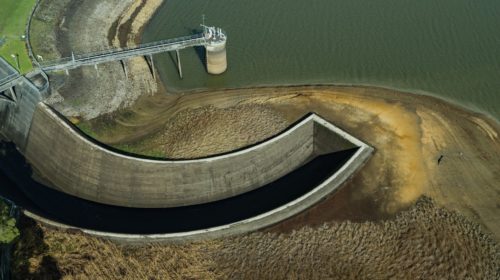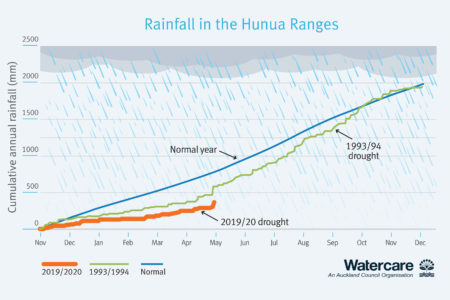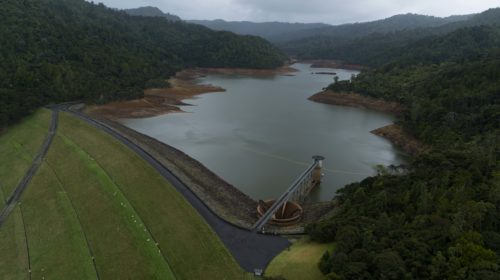Auckland Council’s Emergency Committee will today consider introducing mandatory water restrictions in response to the ongoing drought, which despite recent rainfall has resulted in a significant water shortage in the region’s dams.
“Auckland is experiencing its worst drought on record, with January to April this year the driest in our history,” said Mayor Phil Goff.
“We have had a long hot summer with less than half of our normal rainfall, which means our storage dams have fallen to around 46.5 per cent, well below the 76 per cent average for this time of year.
“For some months, Watercare, with Auckland Council backing, has run a campaign around the need to conserve water. We now need to reinforce that message with mandatory restrictions, which is what the Emergency Committee is considering today,” he said.
“If agreed to by councillors, this means that from Saturday 16 May, Aucklanders will have mandatory restrictions on their water use.

“I appreciate that there is a lot of stress due to Covid-19, which is why we have delayed bringing in these restrictions, but now we have to start taking stronger action to conserve water,” says Mayor Goff.
“For households, there will be a ban on the use of outdoor hoses for activities like watering gardens and washing cars, and a ban on the use of water-blasters. For the commercial sector, additional restrictions will apply to commercial car washing, and watering of sports fields, plants and paddocks.
“While these restrictions can and will be enforced, we want Aucklanders to work with us to voluntarily save water by doing things like taking shorter showers and using dishwashers and washing machines only when full.
“The mandatory restrictions will highlight water conservation overall. By everyone saving a little, we can save many millions of litres of water and avoid the need to move to more draconian restrictions under stage 3, should winter and spring not bring enough rainfall.
“While conserving water to reduce demand, other steps are being taken to increase supply of water, using more water from the Waikato River, use of aquifers and use of bores and a currently unused storage dam for non-potable water use.
“Longer term, major changes to increase our water supply resilience in the face of the impact of climate change will be necessary. These include consent to draw much more water from the Waikato, measures to incentivise use of roof rainwater for gardens, consideration of upgrading water from the Māngere Treatment Plant to a potable standard, desalination and reducing water loss through leakage,” the Mayor said.
The Emergency Committee will consider different stages of water restrictions. Restrictions for commercial and non-residential water usage at Stage 1 include banning the use of outdoor hoses or water blasters unless it is for a health, safety, emergency or biosecurity reason; banning commercial car washes unless they use recycled water; and restricting the watering of sports fields, plants or paddocks to those which have an irrigation system fitted with soil moisture or rain sensors.
Non-residential and commercial restrictions at Stage 2 would be similar, but would include banning all watering of sports fields.
Waitākere Councillor Linda Cooper, who is the liaison councillor for Watercare, says enforcement will take a graduated approach, with education as the first priority, escalating to prosecution only if there are significant or repeated breaches.
“Aucklanders understand the need to conserve water during this time, and we are hoping that people will voluntarily restrict activities such as watering their gardens and using water-blasters without the need for enforcement,” she says.
“If restrictions are agreed, they will be notified publicly to ensure that all Aucklanders are aware of their responsibilities.”

Restrictions on water usage are governed by Auckland Council’s Water Supply and Wastewater Network Bylaw 2015. If restrictions are agreed under the bylaw, it is likely that compliance and enforcement will be led by Watercare, with support from the council’s Regulatory Compliance team.
Watercare has been running a public campaign since early February, “Water is precious”, urging Aucklanders to make voluntary water savings. This has resulted in a reduction in demand, even though Aucklanders have been spending more time at home during the Covid-19 lockdown.
Further information about the drought is available at watercare.co.nz.
Waterwise tips are available at waterforlife.org.nz.
A compilation of the latest drone footage of dams in the Waitakere ranges (filmed on Tuesday) is available here: https://vimeo.com/415383384

Photos of the Lower Huia dam were taken on 8 April.








